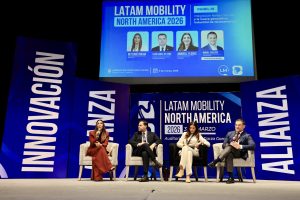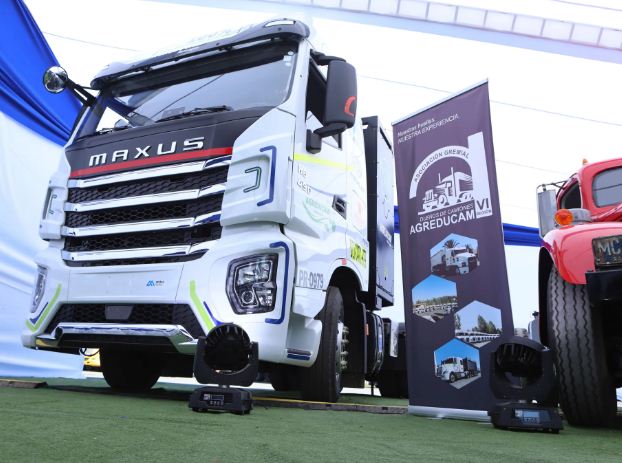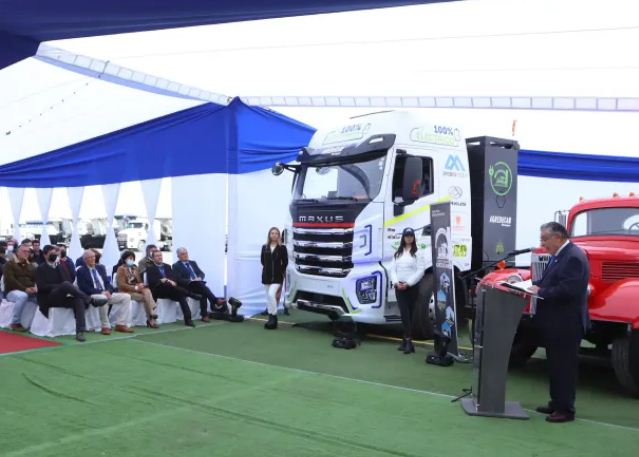
Chile: Ministries of Energy and Transport Test Maxus Electric Mining Truck

Mining is one of the most important economic activities in Chile, which is why sustainability and new technologies represent a fundamental aspect to reduce the emissions generated within the entire chain.
Specifically, electromobility takes the leading role in the sector to transport materials and seek efficiency, optimization and environmental protection.
In this sense, the Undersecretary of Energy, Julio Maturana, together with his counterpart of Transport, Cristóbal Pineda, headed the presentation of the pilot project that tests a 100% electric road truck of the Maxus brand, unique in Chile and for the first time in large mining, to transport material to and from Codelco’s El Teniente Division.

Vehicle Features
The Maxus model in Chilean territory offers a range of up to 200 kilometers, fully loaded and at cruising speed, and allows a gross combined weight of up to 49 tons.
The tract truck uses conventional batteries mounted in the rear, and in the back of the cab there is a box with four double battery packs made of lithium iron phosphate, which has the advantage of high safety and long life. Each of them has a capacity of 282 KWh.
In addition, the vehicle is noise-free and emits no greenhouse gases compared to a diesel one, thus significantly reducing the carbon footprint of the operation.
State Policy
The Chilean Ministry of Energy explained that the high tonnage electric truck in large-scale mining is a step towards advancing the country’s goals within the framework of the National Electromobility Strategy, which promotes alliances with the public sector, state-owned companies and the private sector.
During the testing activity, Maturana highlighted that the government has several initiatives related to electric mobility currently under development, among them the pilot project financed by the Global Environment Facility (GEF). This plan will be implemented by the United Nations Environment Program (UNEP) in Puerto Montt, Talca and Antofagasta, focusing on public transportation.
“As the Ministry of Energy, we aim for electromobility to be promoted not only in the Metropolitan Region, but also in the different regions of the country. We are not only introducing electric vehicles, but also electric charging points, training, mechanics and also how we are generating educational, academic and technical profiles related to electromobility”, concluded Maturana.





